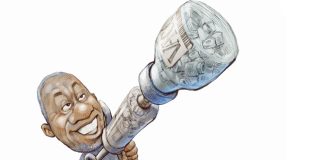
Placing your assets in a trust offers a unique double benefit: you get to enjoy the assets, yet they no longer belong to you.
And because they are not yours anymore, they cannot be taken from you. So, if you run into financial difficulties, the assets are safe. In addition, if you die and your assets are in trust, there are no tax or estate consequences.
READ Why should your business pay more tax than necessary?
A word of caution, however: before using a trust asset, you need to ensure that all the trustees have given their consent to this.
In fact, running a trust is all about communication. It’s impotant to have regular trust meetings, and to minute the decisions of the trustees. Also, arrange for a professional to review the decisions regularly, for tax and other purposes.
Loans and interest
If you sell assets to the trust, the trust will either pay you cash, if it has money, or it will owe you the money.
In a previous column, we saw that interest has to be charged on the loan owing to you.
This can be used to your benefit.
READ Bank loans: advice for smaller producers
In terms of the Income Tax Act, a certain amount of interest is exempt from tax in your hands. For this year, that amount is R23 800. That’s per person, per year!
For a husband and wife, that’s nearly R50 000/year. At the official rate of interest, about R500 000 can be utilised as a loan account between spouses before the interest attracts tax.
One way of making such an investment into a trust grow is to fund an asset with a potentially high value.
A good example is a classic car, bought at a reasonable price, restored to concourse condition, and placed in trust. If the loan attracts interest, the income earned when the asset is utilised can be distributed among beneficiaries without further tax consequences.
A company can be set up in the trust with the loan amount. In a farming situation, for example, that company might take over certain income-producing activities. If the company generates money, the funds can be used to settle the loan.
Although this is expensive, it is worthwhile, as the assets are particularly secure if there are no loan accounts owing. Loan accounts can nonetheless be attached; they can be thought of as loose ends.
Once the trust is a standalone financial entity, the negative aspects of the various tax laws directed at trusts do not apply anymore.
Then the true benefit of the trust, namely its protection, is absolute.











